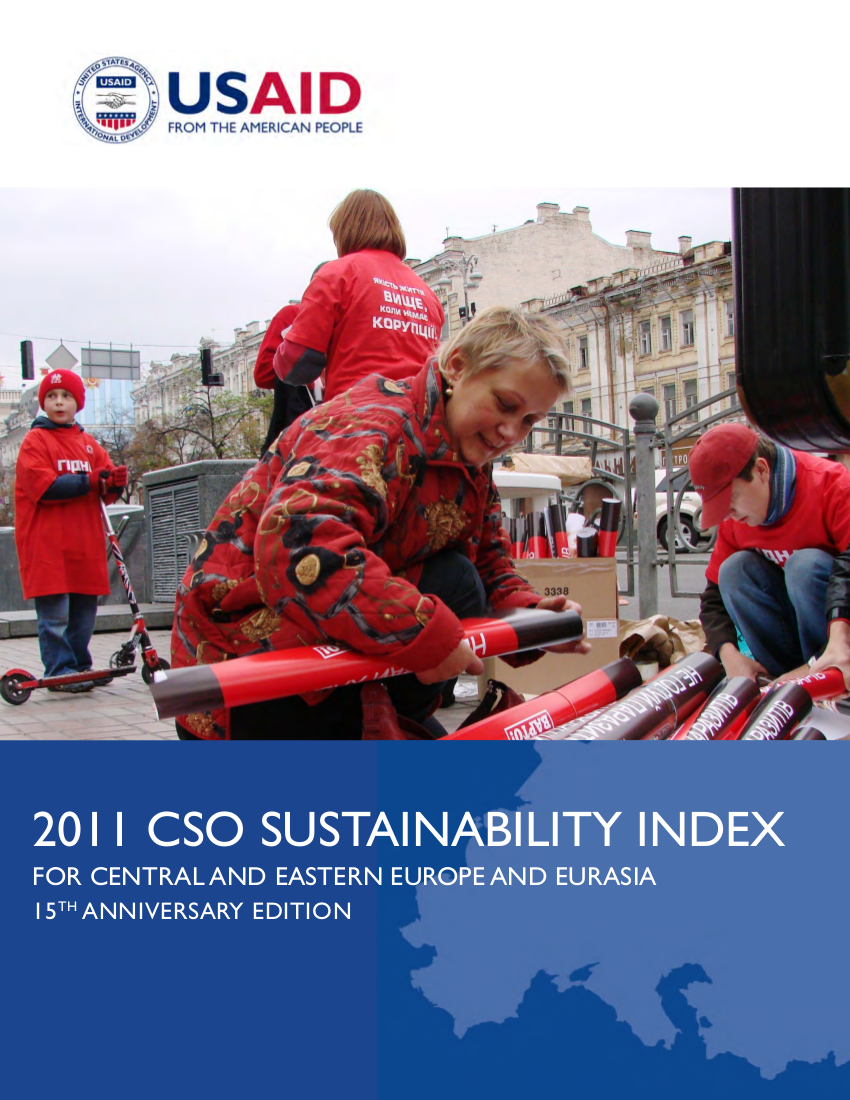- What We Do
- Agriculture and Food Security
- Democracy, Human Rights and Governance
- Democracy, Human Rights and Governance Strategy
- Supporting Free and Fair Elections
- Supporting Vibrant Civil Society & Independent Media
- Protecting Human Rights
- Promoting Accountability & Transparency
- Importance of Democracy, Human Rights, & Governance to Development
- COVID-19: Issues and Potential USAID Responses
- Countering Trafficking in Persons
- Global Labor Program
- Religious Freedom
- Youth Impact
- Economic Growth and Trade
- Education
- Environment and Global Climate Change
- Gender Equality and Women's Empowerment
- Global Health
- Humanitarian Assistance
- Transformation at USAID
- Water and Sanitation
- Working in Crises and Conflict
- U.S. Global Development Lab
Speeches Shim
In 2011 changes in CSO sector sustainability reflected the overall negative economic situation across the world. CSO capabilities were also significantly influenced by political developments, both domestic and international. On the domestic front, many countries held national elections in 2011 that shaped the environment in which CSOs operate. Internationally, the EU continues to be a major player throughout the region, with accession negotiations in the Southern Tier often opening up possibilities for CSO input into the policy process. Whether responding to floods in Azerbaijan, providing legal aid and promoting women's economic empowerment in Bosnia, addressing health concerns in Tajikistan, or ensuring disability rights and protections in Russia, CSOs across Europe and Eurasia are actively responding to the challenges their countries face.
The annual CSO Sustainability Index is the Bureau for Europe and Eurasia's premier instrument for gauging the strength and continued viability of the region's CSO sectors. In recognition of the broad range of nonprofit civil society organizations (CSOs) active in the region, beginning with 2011 the Index will be called the CSO Sustainability Index instead of NGO Sustainability Index, as it was known in previous years. The Index analyzes seven different dimensions of the CSO environment: legal environment, organizational capacity, financial viability, advocacy, public image, service provision, and NGO infrastructure. Taken together, these dimensions provide a basic description of the viable and sustainable of the CSO sector.


Comment
Make a general inquiry or suggest an improvement.